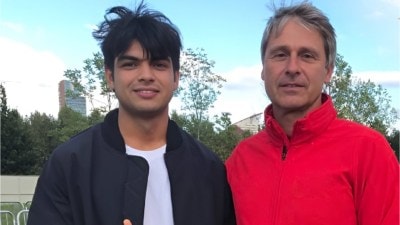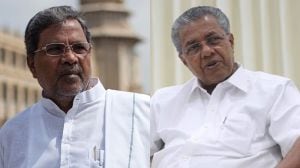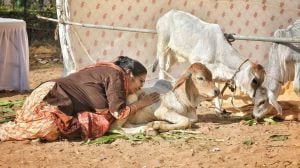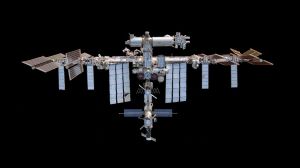what the world is reading
The story says Indias general election is nothing less than a miracle when you look at the scale of the entire exercise.....
Economist/ Indias jumbo election
The story says Indias general election is nothing less than a miracle when you look at the scale of the entire exercise. The article predicts two outcomes for the electionsfirst,many shady characters will find their way to Parliament and second,the next government will be a coalition that will be held hostage by smaller parties. Blaming bigger parties for the scene,the writer says the Congress,despite able technocrats like PM Manmohan Singh,remains an antiquated dynastic machine. The post was bestowed on Singh by Sonia Gandhi,the partys Italian-born leader. Singh seems to be keeping the seat warm for her son Rahul,an unconvincing chap apparently destined to represent the fifth generation of his family to lead the Congress. Considering the extremist nature of the BJP though,it admits,If the Economist had a vote,it would plump for the Congress.
Newsweek/ Eat your heart out Chicago
Anuj Chopra trails the rapsheet of Mukhtar Ansari,the BSP candidate accused of offences like murder and kidnapping,who is running his election campaign from a jail in UP. A few days before the polls,the Election Commission transferred him some 250 miles away to another prison,yet could hardly dent his gameplan. Chopra says criminals are viewed as rebel heroes in rural UP and people think of Ansari as their savior,an employment agency who generously distributes cash to the indigent and pays for weddings and medical bills. Although power outages are frequent in the state,Ansaris village gets electricity 22 hours a day. Chopra quotes Ansaris supporter Shakuntala Devi as saying,Ansari is bad with people who are bad with him.
FOREIGN POLICY/The Worlds Biggest Election
A photo essay on Indias elections talks of the sheer logistics of conducting an election in a country that has 714 million eligible voters,double the US population,with unique voting machines for illiterate people to operate in areas without electricity. 1,368,430 such machines will be used at most of Indias 828,804 polling stations,monitored by 6.1 million officers. The essay explains the exercise through picturesthe leading parties and their leaders,the Third Front and even a fledgling Fourth Front.
Time/ Mumbai Attacks Trial Offers Rare Glimpse into Indian Courts
Jyoti Thottams report on the 26/11 trial talks of the dysfunctional legal system of India. She talks of the application submitted by Abbas Kazmi,defence advocate of Ajmal Amir Kasab,the lone surviving terrorist in the Mumbai attacks of November 2008. When Kazmi told the judge that Kasab claimed to be a minor and requested that his case be heard in a juvenile court,the judge asked Kasab to stand up and said: It looks that he is definitely above 21. And the judge decided to dismiss the application. Thottam quotes Swati Mehta,Coordinator of the Prison Reforms Programme at the Commonwealth Human Rights Initiative in New Delhi,as saying,If a defendant claims to be under 18,the judge is required to order medical tests to establish age. The matter-of-fact dismissal of a fairly serious challenge is just one of many reminders that the trial is a long way from the tidy proceedings of law and order, writes Thottam.
- 01
- 02
- 03
- 04
- 05































